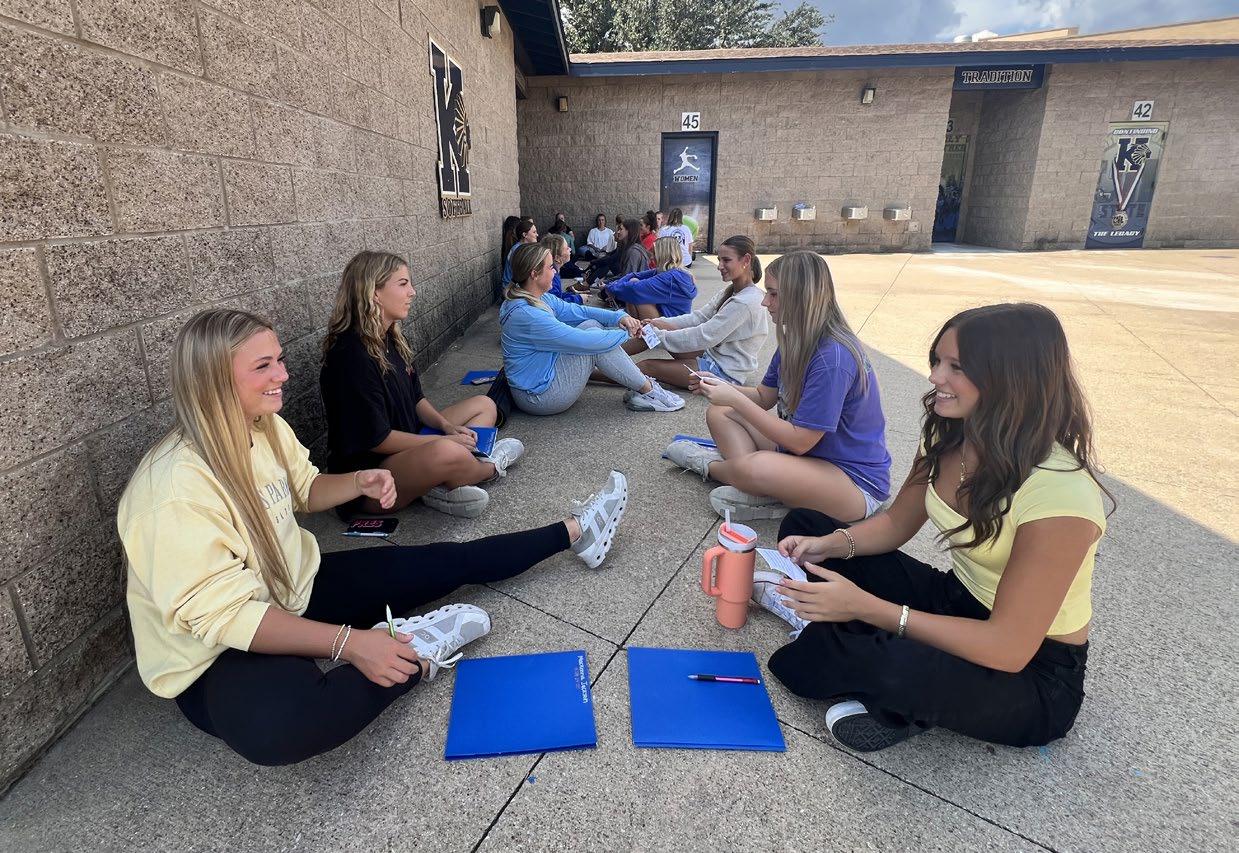
4 minute read
Building a Championship Culture in High School Softball
By Jessica PaulsAssistant Softball Coach - Keller High School
Start with Purpose: The Why Behind the Work
Culture is the foundation of a high school softball program. It's not just about how we play the gameit's about who we are when no one is watching. In our program, we begin by identifying our "why." Why do we show up every day? Why do we hustle on and off the field? Why do we support our teammates?
These guiding questions shape the heart of our culture. We establish clear values like discipline, respect, resilience, and trust, and we revisit them often-not just during team meetings but in everyday moments. From the way we stretch before practice to how we respond after a tough loss, culture shows up in everything we do. When players understand the deeper purpose behind their actions, their investment and accountability grow stronger.

Culture in Action: Systems That Work
Building culture doesn't stop with words on a locker room wall-it takes intentional action. In our program, we implement consistent systems that reinforce our core values.
Our "Support Sisters" system pairs players each week to build trust and create opportunities for peer mentorship. Weekly check-ins, shout-outs, and even locker notes have made this one of our most beloved traditions.

We also integrate growth-focused tools like book studies-this year we tackled *Mind Gym*, learning how mental strength impacts physical performance. Community outreach projects, such as our firefighter day or youth clinic, help players see they are part of something much bigger than themselves.
Our themed home nights (like Teacher Appreciation and Military Night) and the 26-Minute Drill (our team fitness challenge) aren't just fun or competitive-they're culture in motion. These events help reinforce our commitment to unity, work ethic, and celebrating what makes us unique.
Learning from the Best
The most successful programs in college softball consistently demonstrate that a strong internal culture is non-negotiable. We look to examples like Oklahoma, Alabama, and Florida State, not to copy them, but to understand how they've built a foundation of sustained excellence.
Oklahoma's joyful, purpose-driven approach shows how passion and high standards can coexist. Alabama's emphasis on "Mudita"-joy in others' success-reminds us that selfless teammates are often the strongest glue. Florida State's culture of family and leadership highlights the importance of mentorship and genuine care.
These programs serve as reminders that what happens off the field-how teammates treat one another, how adversity is handled, and how pride in the program is nurtured-ultimately drives performance on the field.

Overcoming Barriers to Culture-Building
Creating and maintaining culture isn't always easy. Even with strong leadership and committed athletes, challenges still arise.
One of the biggest barriers is resistance to change. Some players may come from different backgrounds or past teams where expectations looked different. Patience, clarity, and consistency are key to helping athletes adjust and buy in.
Another common challenge is "outside noise"-things happening off the field that can impact our players and the program. Whether it's academic pressure, personal struggles, social media distractions, or rumors from the stands, outside noise can seep into the dugout and distract from our goals. Coaches must be proactive in providing support systems and teaching athletes how to tune out the negativity.
Balancing fun and discipline is another tightrope walk. We want our program to be challenging, but also joyful. The most successful cultures are built where expectations are high, but players feel cared for and seen.
Final Thoughts: It's Bigger Than the Game
A championship culture isn't built in a day-it's built in the daily decisions and small moments that add up over time. What we're building in our high school softball program isn't just about winning games; it's about developing leaders, fostering confidence, and creating lifelong memories.
When players feel safe, seen, and supported, they grow as both athletes and people. When they buy into a vision bigger than themselves, the result is something truly special. As coaches, that's the legacy we leave behind-and the culture we pass on.









